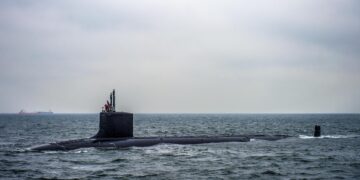November 14, 2022
Biden-Xi Meeting A Good Start—But Tangible Progress Remains Elusive
FOR IMMEDIATE RELEASE:
November 14, 2022
Contact: press@defensepriorities.org
WASHINGTON, DC—Today, President Joe Biden and Chinese President Xi Jinping held a bilateral summit in Indonesia ahead of the G20 meeting. Defense Priorities Director of Asia Engagement Lyle Goldstein issued the following statement in response:
“This face-to-face meeting between Presidents Biden and Xi is long overdue. It is the most important bilateral relationship in the world and can impact the prospects for peace, global prosperity, and climate change. The meeting seems to have accomplished the minimum: creating the potential for stabilizing the relationship. But that requires robust follow-up and a determination on both sides to break with trends in both countries toward vitriolic rhetoric and escalating tension.
“Competition in some areas is unavoidable and even useful, but the leaders should agree: most issues are not actually zero-sum in nature and militarized rivalry between nuclear powers is dangerous. Indeed, the two readouts of the respective governments about the Bali meeting diverged quite dramatically, including on the Ukraine war and Taiwan. On the former, the U.S. emphasized an agreement that nuclear weapons should not be used, while the Chinese readout didn’t mention nuclear weapons, stating simply that ‘there are no winners.’ On Taiwan, Biden raised objections to China’s ‘increasingly aggressive actions’ against Taiwan. Xi countered by describing Taiwan as China’s internal affair and a ‘core interest,’ explicitly using the term ‘red line’ to suggest China is willing to risk conflict over Taiwan.
“To make tangible progress on these and other difficult issues, the two leaders and their respective teams should strive for an annual summit that involves something more like three days of talks, rather than just three hours.”
More on Asia

Featuring Dan Caldwell
July 13, 2025

By Jennifer Kavanagh and Dan Caldwell
July 9, 2025

Featuring Jennifer Kavanagh and Dan Caldwell
July 9, 2025

Featuring Lyle Goldstein
July 4, 2025





